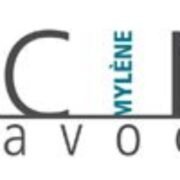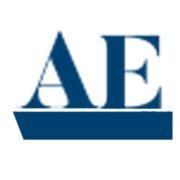Best Accounting & Auditing Lawyers in Sierre
Share your needs with us, get contacted by law firms.
Free. Takes 2 min.
List of the best lawyers in Sierre, Switzerland
1. About Accounting & Auditing Law in Sierre, Switzerland
Accounting and auditing law in Switzerland governs how companies prepare financial statements, manage reporting obligations, and undergo audits. In Sierre, as in the rest of the canton of Valais, businesses must comply with federal rules and cantonal practices for accurate accounting and transparent disclosures. A Swiss avocet or avocat specialized in accounting can help you understand your duties and avoid penalties.
Most Swiss companies follow the Swiss Code of Obligations, which sets the framework for bookkeeping, annual accounts, and disclosures. Audits are mandatory for certain larger entities or companies meeting specific size criteria, while others may be exempt or subject to limited review. An accounting and auditing lawyer can advise you on threshold tests, exemptions, and the appropriate reporting framework for your situation.
In practice, Sierre businesses often work with local accountants, auditors, and legal counsel to ensure alignment with federal standards, cantonal tax requirements, and sector-specific regulations. The role of a specialist is to interpret complex rules, prepare compliant financial statements, and coordinate responses to authorities when issues arise. This guide explains the typical scenarios where you may need expert legal support.
2. Why You May Need a Lawyer
A Swiss avocet or avocat can provide targeted guidance in concrete scenarios that affect businesses in Sierre and the Valais region. Below are real-world situations where accounting and auditing legal advice is crucial.
Scenario 1: Your SME in Sierre is approaching the audit threshold. A lawyer helps determine whether you must undergo a statutory audit or qualify for an exemption, and how to prepare the required documentation. This avoids unnecessary audits and ensures compliance with the Code des obligations. An advisor also helps you manage potential late filings or adjustments before year-end.
Scenario 2: You receive a formal notice from cantonal tax authorities regarding accounting records. A legal expert can respond to the notice, conduct a compliance review, and negotiate reasonable correction plans. This reduces the risk of penalties and ensures your records meet Swiss tax reporting standards.
Scenario 3: A merger or acquisition involves due diligence and audit confirmations. A lawyer coordinates with auditors to verify disclosures, assess liability implications, and structure the deal to minimize post-closing disputes. This is especially important for transactions involving Sierre-based SMEs with cross-border elements.
Scenario 4: An audit reveals internal control weaknesses or potential misstatements. A legal counsel can guide remediation, document corrective actions, and manage any subsequent inspections by authorities or lenders. This helps safeguard corporate governance and financing terms.
Scenario 5: A regulated financial services activity or business line requires oversight by FINMA or other authorities. A lawyer helps navigate the applicable regulatory notices, ensure appropriate audit opinions, and address any investigations that affect your operations in Sierre and the Valais region.
Scenario 6: You plan a voluntary restatement or restate financial statements after discovering errors. A lawyer can coordinate with auditors, explain changes to stakeholders, and manage communications with investors and banks to maintain credibility.
3. Local Laws Overview
The Swiss accounting and auditing landscape combines federal rules with cantonal and sector-specific requirements. Below are two to three key laws and regulations that commonly govern Accounting & Auditing for businesses in Sierre, with notes on applicability and recent changes where relevant.
Code des obligations (Swiss Code of Obligations) - Accounting and annual financial statements. This federal code sets out the core rules for bookkeeping, annual accounts, and disclosures for most companies in Switzerland. It forms the baseline for what must be recorded, how statements are prepared, and who must audit. The CO applicable provisions guide SMEs in Sierre and across Valais, and they are frequently updated to reflect evolving accounting practices. For authoritative text, see Swiss federal resources.
Audit-related oversight by FINMA for financial market participants. The Swiss Financial Market Supervisory Authority governs audits and reporting for banks, insurers, and other regulated entities. While this regime primarily affects financial institutions, many businesses in Sierre interact with auditors or lenders that rely on FINMA-compliant audits. Understanding FINMA expectations helps ensure your external audits align with regulatory standards.
Value Added Tax Act and related VAT regulations. Swiss accounting must accommodate VAT reporting, invoicing, and deductible input taxes. Proper VAT bookkeeping affects balancing sheets and cash flow, particularly for services and cross-border activities in the canton of Valais. The Swiss Federal Tax Administration provides guidance on VAT registration, returns, and reclaim procedures. Accurate VAT accounting reduces risk of penalties and interest.
Source note: The Swiss Code of Obligations governs corporate accounting and annual statements, including exemption criteria for audits. See official Swiss code resources for the precise text and current thresholds.
Source note: FINMA oversees auditing regulatory compliance for financial market participants, influencing how audits are conducted and reported in Switzerland.
Additional cantonal notes: Valais cantonal administration and local banks may impose reporting expectations beyond the CO, especially for larger SMEs or public-interest entities. Always verify any cantonal requirements applicable to your sector and locality in Sierre. Official sources provide the most reliable guidance on these details.
4. Frequently Asked Questions
What is the Swiss Code of Obligations for accounting?
The CO provides the framework for bookkeeping, annual accounts, and disclosures for Swiss companies. It applies to most businesses in Sierre and Valais. A lawyer can interpret the CO provisions as they relate to your entity and sector.
What is the difference between a statutory audit and a review?
A statutory audit is a full, independent examination of financial statements. A review is a lighter procedure with limited assurance. The CO and auditing standards determine which applies to your company based on size and sector.
What documents should I gather before meeting an accounting lawyer?
Prepare your last three years of financial statements, trial balances, tax filings, contracts with lenders, and any correspondence with auditors. Having the documents ready speeds up the initial assessment.
How much does hiring an accounting lawyer cost in Sierre?
Legal fees vary by complexity, the attorney's experience, and the scope of work. Expect a blended rate for consultations plus hourly or fixed fees for specific tasks such as document reviews or negotiations with authorities.
What determines if my SME must have an audit?
Audits depend on statutory thresholds like size and turnover. If you surpass the threshold, a statutory audit is required; otherwise a review or no audit may be possible. An avocet can confirm your status and advise on steps to stay compliant.
Do I need a local lawyer versus a national firm?
A local lawyer in Sierre understands cantonal practices, Valais authorities, and nearby banks. A national firm may provide broader resources for cross-border issues, but local expertise is valuable for compliance and negotiations in Sierre.
Is it possible to use Swiss GAAP FER instead of IFRS?
Swiss GAAP FER is an alternative accounting framework often used by SMEs not listed on a stock market. It is recognized in Switzerland and can be tailored to a company’s needs with appropriate audit support.
How long does an audit remediation take?
Remediation timelines depend on the severity of issues and the number of internal controls affected. Typical corrections may require weeks to a few months, with ongoing follow-up audits or reviews.
What is the typical process to respond to a tax audit notice?
Engage a lawyer to assess the notice, gather supporting documents, and prepare a formal response. The process usually involves a correspondence phase and may include meetings with cantonal tax authorities.
Can I negotiate with authorities before or after an audit?
Yes, experienced legal counsel can negotiate adjustments, settlements, or extended timelines. Early engagement often yields more favorable outcomes and fewer penalties.
Do I need a lawyer for day-to-day bookkeeping or just for audits?
For routine bookkeeping, a certified accountant is typically sufficient. A lawyer becomes essential when you face audits, disputes with authorities, or complex regulatory questions that could affect liability or penalties.
5. Additional Resources
Useful, official organizations and resources can guide you through accounting and auditing in Switzerland and Valais. The following organizations provide authoritative information and services relevant to Sierre residents.
- FINMA - Swiss Financial Market Supervisory Authority - Supervises banks, insurers, and securities markets; provides guidance on auditing expectations and regulatory compliance. finma.ch
- Swiss Federal Tax Administration (ESTV) - Offers guidance on VAT, corporate taxes, and related reporting requirements; essential for accurate accounting in Switzerland. estv.admin.ch
- Swiss Code of Obligations (CO) - Official text - Federal law governing accounting, annual accounts, and disclosures; consult the official fedlex resource for current provisions. fedlex.admin.ch
6. Next Steps
- Define your needs and timeline: decide whether you require guidance for audits, tax issues, or corporate governance matters. Set a target date for initial consultation.
- Identify potential specialists: search for avocats and solicitors with accounting and auditing experience in Sierre or the Valais region. Gather candidate profiles and references.
- Prepare a document brief: assemble financial statements, tax returns, audit notices, and relevant contracts for the initial meeting.
- Interview shortlisted lawyers: ask about approach, estimated fees, timelines, and experience with similar cases in Valais and Sierre.
- Ask about scope and fee structure: request a clear engagement letter outlining deliverables, milestones, and billing rates to avoid disputes later.
- Check references and credentials: verify bar membership, professional associations, and previous client outcomes similar to your situation.
- Agree on engagement and start work: sign a retainer, share necessary documents securely, and establish regular progress updates with your legal counsel.
Lawzana helps you find the best lawyers and law firms in Sierre through a curated and pre-screened list of qualified legal professionals. Our platform offers rankings and detailed profiles of attorneys and law firms, allowing you to compare based on practice areas, including Accounting & Auditing, experience, and client feedback.
Each profile includes a description of the firm's areas of practice, client reviews, team members and partners, year of establishment, spoken languages, office locations, contact information, social media presence, and any published articles or resources. Most firms on our platform speak English and are experienced in both local and international legal matters.
Get a quote from top-rated law firms in Sierre, Switzerland — quickly, securely, and without unnecessary hassle.
Disclaimer:
The information provided on this page is for general informational purposes only and does not constitute legal advice. While we strive to ensure the accuracy and relevance of the content, legal information may change over time, and interpretations of the law can vary. You should always consult with a qualified legal professional for advice specific to your situation.
We disclaim all liability for actions taken or not taken based on the content of this page. If you believe any information is incorrect or outdated, please contact us, and we will review and update it where appropriate.









